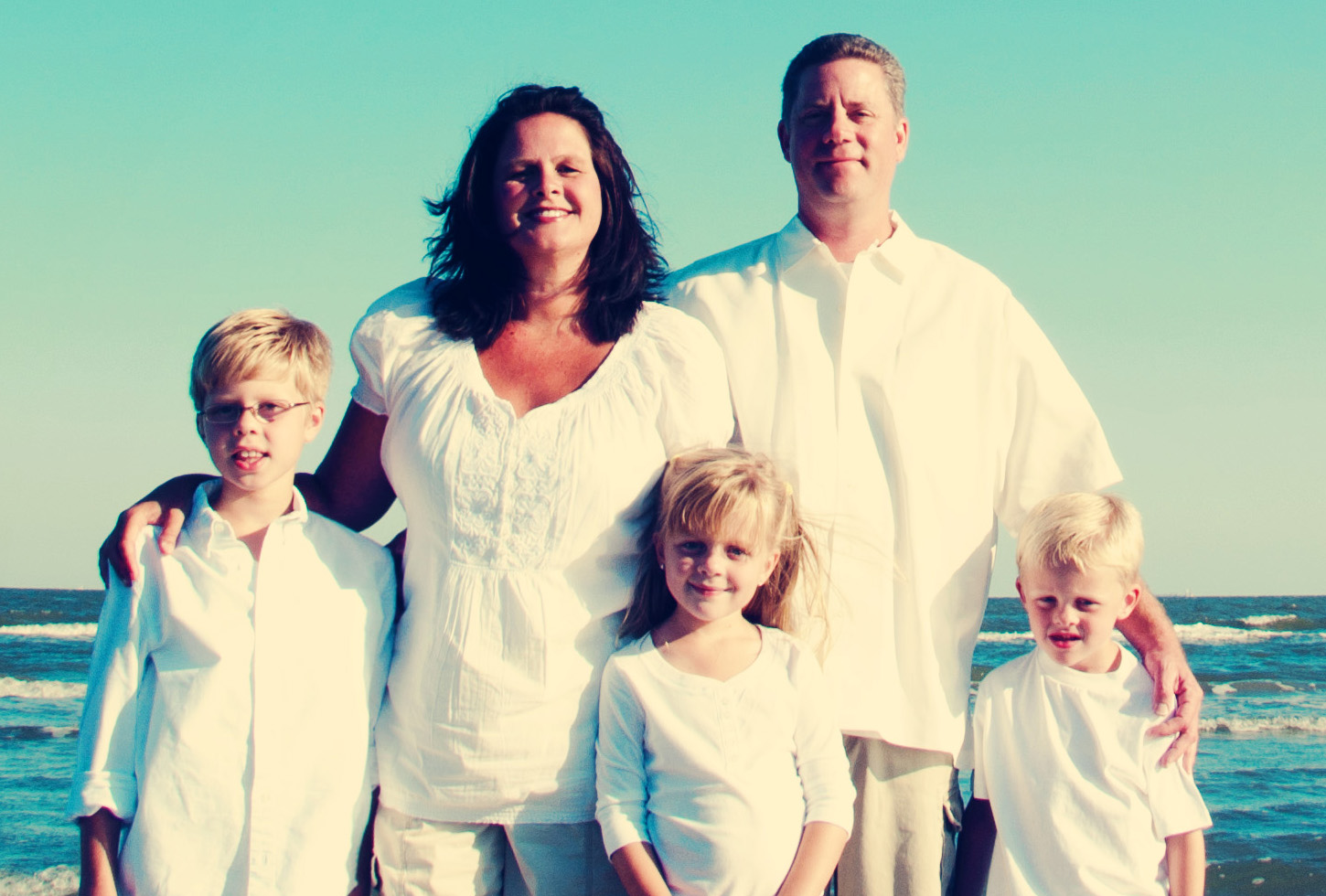How I Support My Teen Who Has Sensory Processing Disorder

Being a parent is like being a calendar. Every day is different. You go to bed at night and awake to something new. If you are an adventurous sort, you may do well with this type of “adventure a day” lifestyle. Myself, well not so much. I am a planner, and spontaneity is the one thing in my parenting toolkit that causes me the greatest angst. When you are the parent of a kiddo with Sensory Processing Disorder, you really never know what to expect that next day to look like. Sure, there will be patterns that you will see begin to emerge and you will begin to recognize triggers that may set off what seems to be a war within your child and yourself. Sprinkled into that SPD mix may be other conditions. With us it was OCD, Asperger’s Syndrome (now known as being a part of ASD) and a tad of ODD. I remember looking at my kiddo’s file one day in the early years of therapy and noticing all of the acronyms and feeling so overwhelmed that I wouldn’t be able to parent this child and help with these alphabet labels. I would certainly give it my best attempts and efforts, but it sounded like such an adversarial foe.
I knew early on that something was different about my boy. He was a toe walker far longer than he should have been. He would sit for long periods of time and play the head butt game with anything or anyone. We learned the value of a good crash mat early on. What looked painful to us as parents was some type of neurological release for him. He loved being swung around and always being in motion…up and down the slide, jumping on the bed or trampoline, running in circles in the swimming pool, etc. I look back at it now and see how he actively sought out those activities as a way of regulating himself when he was unable to speak and express his needs.
Although he craved heavy work and a lot of stimulation in certain body systems, he also would cry out in pain when some of his systems were over stimulated. We live in a college town, so college sports are what people do here for leisurely family time. We tried that…for a minute. The crowds of people seemed too much for him. He would put his arms out straight and twist back and forth, as if he was trying to burrow in his own personal bubble in the midst of the masses. The noises were also too much. He would cover his ears and scream. Not enthusiastic screams, but screams of pain and intolerance. It soon became apparent that our family would only do outings if we could easily have an exit strategy in place. All my best efforts to parent and have fun were no longer matching my ideas and plans. Our lives were now based on this child’s wants, needs and ability to thrive and that was okay.
We did survive the ‘difficult child’ days. That was the description our first pediatrician gave us when we told her our concerns. Fortunately we have since found members of the clinical community that understand and embrace my kiddo and give me the resources I need to continue to give him all my best. Now we find ourselves in the parenting-a-teenager-with-SPD phase of our lives, and let me say that it looks much different than the young child with sensory integration complexities. Perhaps it is the aged wisdom of my own maturity, but this phase is much scarier to me. This season of parenting now involves a bigger bodied person that has more physical power and strength than that of a child. The tools and gadgets that used to provide comfort and regulation now have to be bigger and stronger too. That child seeker has now become a more aged thrill seeker. It takes more to regulate his system and satisfy his seeking needs. His avoider tendencies now take the form of flight and escapism. I often think that all my best safety strategies are no match for him. He tries hard to out climb, out run and out smart us when he finds himself in a situation that makes him uneasy. Let’s face it, adolescence and puberty are just uneasy times for everyone.
My child is brilliantly minded, but when matched with a desire to flee, it can have dangerous consequences. If his system feels overwhelmed or threatened in any way, he may bolt. We have found him at the top of trees on thin limbs that weren’t made for the weight of his teenage body. He has been on our house and our shed. He has climbed out the second story window of another person’s home to find a quite moment on their roof. We can remove the structures and items that help the climbing, but with his age and determination, he always finds an alternative way to get up high. We have found him on buildings in our town. He jumps fences and finds solace and protection high above the ground. Watching for triggers and knowing how to cut them off early is something we must do all of the time. All my best vigilance has been called helicopter parenting or paranoia by those that may not understand the complexities of SPD and how it is driven from the nervous system. It is not the result of being a bad child or a bad parent.
Navigating through our journey with SPD is certainly not something I ever thought I would do, or do well. It has taken us to some very exciting places…amusement parks are a big hit with my kid. It has opened up many opportunities for us too. My kiddo had the opportunity to meet Dr. Temple Grandin and Dr. Lucy Jane Miller. He has seen their books in our house for years, so they are like celebrities to him. It has afforded us the ability to open up a business that serves the SPD community and give back to those parents and families that are like us. It has helped us join the conversation about what SPD looks like. To the parents of a newly diagnosed child, it may look overwhelming and impossible. To the parents of a teenager, like ours, it may look overwhelming and impossible. To all parents, it should look inclusive and attainable. These kiddos can do so much with the correct support.
Through it all, we have found our way by aligning our family with the best support systems we could find. There are only a few, heavily screened, family members that I feel comfortable leaving my son with while I venture out and enjoy my other kids. We have done our research on the best professionals in our area and have adjusted our schedules and made crazy long drives to get him there. I have found so much support from private, online communities that understand the quirks and chaos that go on in our home. We continue to teach our son that he can advocate for himself by using the tools he has learned the last 10+ years. Recently, we have noticed that as his confidence rises, his need to run diminishes. By all appearances, he seems to be moving out of this latest sensory behavior. He is finding his stride and it looks good on him.
I give my kiddo all my best everyday. I often feel like it isn’t good enough. Some days it is easy. Other days it is not. However, I make certain to go to his bed every night after he has gone to sleep and quietly tell him that it is worth it…he is worth it.
If your home looks like a DIY therapy room, just know that it will pass. Your SPD’r will successfully move through their current trials and into something else that may appear more frightening. Treat it just as you did in the beginning, with lots of research and support. Surround yourself with people that care about you and your child. Through your research, be descriptive when asking for help (i.e. I need you to go to the fabric store and purchase this much lycra material and help me make a bodysock). Take care of yourself so that you can care for your child. Love the others in the house too….they may be going through their own grief of having a family member that may sometimes appear lost within the world.
Know that by coming here to find out more information, you are already taking a big step to advocate and educate for SPD. And just like that calendar, days will fly by and you will marvel at the positive changes you see within your child and yourself.
Visit the Treatment Directory to find professionals trained in the STAR Treatment Model in your area.
Or fill out the Child Intake Form or the Adult Intake Form now to start treatment at the STAR Institute in Denver, Colorado.
 Mama Chewi is the head mom in charge at Chewigem USA. She worked in the corporate world as a Human Resources Director for many years before shifting her focus to starting a business that would help those families living with Sensory Processing Disorder (SPD) and Autism. Married to Papa Chewi for 20+ years, they left the corporate world 3 years ago when they found a solution for their soon to be middle schooler’s need to chew. Together with their 14-year-old son, Boyoboy, and 11-year-old twins, Jacko and Abracadabra, they keep busy running the family business, playing music, and seeking out water sources for family fun.
Mama Chewi is the head mom in charge at Chewigem USA. She worked in the corporate world as a Human Resources Director for many years before shifting her focus to starting a business that would help those families living with Sensory Processing Disorder (SPD) and Autism. Married to Papa Chewi for 20+ years, they left the corporate world 3 years ago when they found a solution for their soon to be middle schooler’s need to chew. Together with their 14-year-old son, Boyoboy, and 11-year-old twins, Jacko and Abracadabra, they keep busy running the family business, playing music, and seeking out water sources for family fun.
